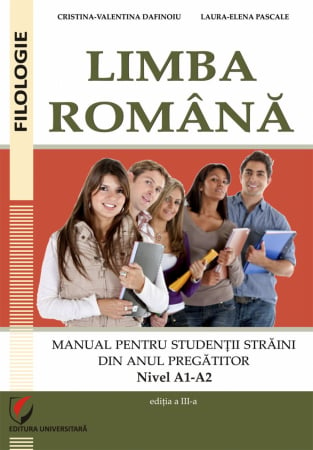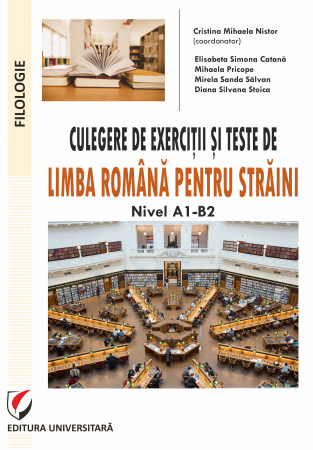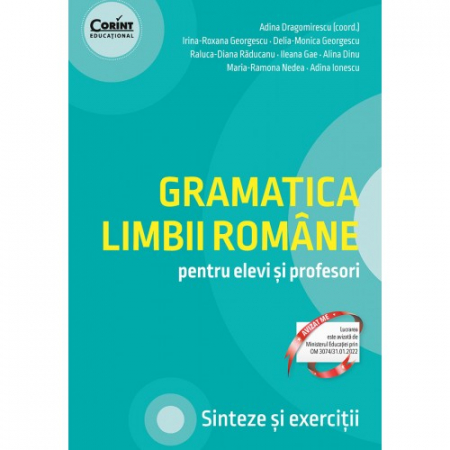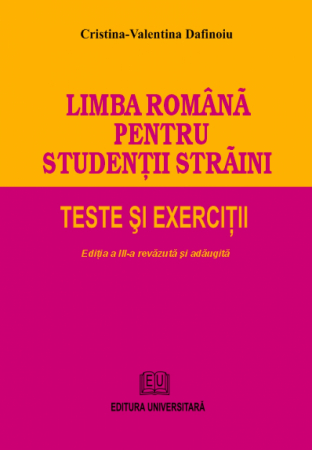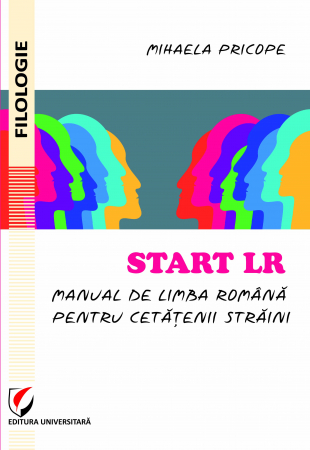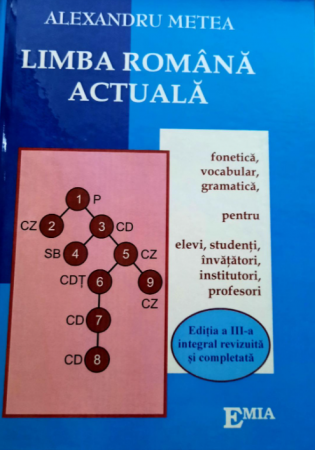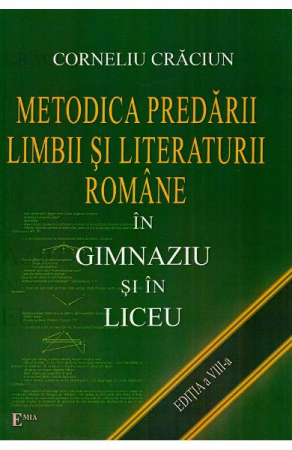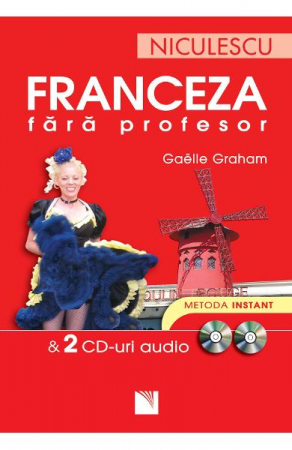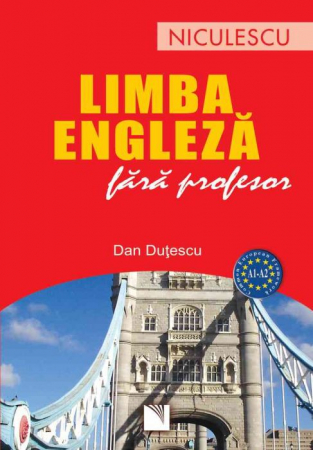ISBN: 978-606-28-0285-1
DOI: 10.5682/9786062802851
Publisher year: 2015
Edition: I
Pages: 184
Publisher: Editura Universitara
Author: Rodica Evelina Circiu
- Description
- Download (1)
- Authors
- Content
- More details
- Where to find it
- Reviews (0)
„The doctoral thesis of Mrs. Rodica Evelina Circiu (on the name of literary critic, Evelina Oprea) - entitled modest, much more modest in relation to the power of comprehension and organization that she sees fully, Mythical nuclei in the Romanian postwar novel - maneuvers with meticulousness and dexterity an imposing bibliography, completely assimilated to the point of purification. It seems obvious to me that her global project is perfectly adequate both as a level of conceptual elaboration and as a structuring and analytical refinement in order to be extended from the researched sequence - before and after - to the entire line of mythical, symbolic, allegorical Roman narrative. , initiatory, and sometimes esoteric, from the origins to the present. Or, Rodica Evelina Circiu is excellently prepared for such a large-scale work, for which she has made a consistent exercise since her diploma thesis, with application precisely on the mythical South American novel. Her thesis is excellently conceived and articulated, written accurately and written in a clear and elegant style, of a feminine elegance, often with expressive performances both at the level of the sentence and the speech sequence, and at that of the pregnant and memorable formula."
Virgil Podoaba
"The main purpose of the paper is to demonstrate the inbreeding between myth and literature, as the author of the thesis says very suggestively. The radiography undertaken by Rodica Evelina Ciurciu is a subtle, understanding and attentive one."
Nicolae Manolescu
"I am happy to confirm the nuanced way in which the mythical infrastructure and the specificity of mythization are approached in the texts under observation, that is, in the novels from the F cycle of D. R. Popescu, in the Book of Metopolis by St. Banulescu, in the Book of Sons and in the I-V Stories of Mircea Ciobanu, in The World in Two Days by George Balaita and in Woman, here is your son by Sorin Titel."
Eugen Negrici
"With a sure critical intuition, the author does not fall into the trap of annoying theoretical developments, broken by the context of the analysis, but the conceptual clarifications come especially as the text of the paper is written. The primacy of the text over any speculative thematics in excess (although the problem of myth is so tempting in itself) is the key to the success of such an exegetical attempt."
Cornel Moraru
-
Mythical Nucleus in Romanian Post-War Novel
Download

RODICA EVELINA CIRCIU
Introduction / 7
Chapter 1. Myth and strategy in the novels of D. R. Popescu / 19
1. The defensive and subversive potential of the myth / 19
2. Rewriting biblical mythology / 22
2.1. The myth of the lost paradise and the utopian experience / 22
2.2. Elements of an apocalyptic / messianic myth. The Christian scenario. The figure of the scapegoat 35
2.3. The myth of the promised land. The figure of the savior / 49
2.4. The myth of Cain and Abel. The problem of guilt and atonement / 60
3. Restoration of Hellenic mythology / 66
3.1.The myth of the labyrinth / 66
Chapter 2. Myth and structure in Stefan Banulescu's novel / 72
1. The mythical ineffable, the fruit of a premeditation of textual alchemy / 72
1.1. The role of metaliterary elements in the configuration of the mythical novel / 73
2. Mythical situations / 80
3. Myth and character / 86
4. Myth and spatio-temporal coordinates / 97
Chapter 3. The poetics of myth in the novels of Mircea Ciobanu, George Balaita and Sorin Titel / 108
1. Mircea Ciobanu / 108
1.1. The road to the opera / 108
1.2. The relationship with the myth / 110 1.2.1. Myth as a Hypotext / 111
1.2.2. The invention of the myth / 115
2. George Balaita / 125
2.1. The dialectic of the mythical-ironic style / 125
2.2. Mythical and fantastic / 133
2.3. Physiology of the heroic model / 141
3. Sorin Titel / 149
3.1. The mythical novel and the dream / 149
3.2. Myth and story / 158 Conclusions / 166
Bibliography / 172
The central term of our approach is that of "myth", a concept with a great expansive energy, always examined and re-examined, having a relative and variable operability due to its many definitions and typologies. Because we do not care about the context of the belief in which a myth was created, the social, practical, moral organization or habits that represent the corollary of myths, we will neglect the ethno-religious extension of the myth, the vision that ethnologists have on this notion or its anthropological acceptance. Giving priority to the binomial myth - literature we will take the phrase "literary myth" whose meanings were theoretically approximated by Philippe Sellier and which was approved by Pierre Brunel in the Dictionary of Literary Myths - where it is, in fact, transformed into a methodological tool.
In an article published in 1984 and entitled "What is a literary myth?" Philippe Sellier notes the conceptual deficit of the literary myth determined by the fact that it is designated by the same noun used in the case of ethno-religious myth . Starting from the more stable definition of the latter (founding myth, anonymous, collective, revealing, with a hierophanic, etiological function, considered true, based on a logic of the imaginary that produces in the analysis a series of strong structural oppositions, etc. ), the researcher identifies the disappearance of certain features and the preservation of others in the transition from myth to literary myth. Literary myth does not found, does not establish, does not establish a reality; the works that illustrate it are included and are not considered "true". The common features would still be the symbolic saturation, the very close structural narrative organization, the metaphysical openings. The most important contribution that Philippe Sellier makes is to include in the corpus of literary myths ethno-religious myths that survive in literature (ethnological myths; biblical myths - some comparable to those seen in various traditions, cultures, religions, the myth of paradise lost, the myth of the apocalypse; others coming from episodes or fragments that received the status of myth thanks to their rich symbolism, the myth of Cain; prestigious ancient myths, etc.) as well as everything that literature has turned into myth.
We will not discuss, therefore, the myth as an ethnoreligious, universal phenomenon existing in all civilizations, epochs, but, authorized by this theory, we will analyze it only in the field of literature as a hypotext - considering the hypothesis that mythical stories reach an author on a chain livresca, after undergoing essential transformations, operated by writers, commentators -, but also as a product of the inventiveness and virtuosity that some authors show.
The post-war novel is not a uniform, monolithic reality. Through myth, literature diversified, became permeable to new influences, the allegorical, analogical spirit developed. Myth has been used as a textual strategy, as a vehicle for a moral code (hence the need for contextualization in the case of certain writers), but also as a means by which they have moved away from the ideological. The reading of reality through the lens of myth was privileged in the postwar period, it responds to ethical impulses, the temptation to disguise or evade, and acquisitions in the space of mitocriticism and the change of the (political) associative framework recommend that I did not intend a total or exhaustive description of the mythical elements), of their manifest or latent content.
Customer Support Monday - Friday, between 8.00 - 16.00
0745 200 718 0745 200 357 comenzi@editurauniversitara.ro
6359.png)
![Mythical Nucleus in Romanian Post-War Novel [1] Mythical Nucleus in Romanian Post-War Novel [1]](https://gomagcdn.ro/domains/editurauniversitara.ro/files/product/large/nuclee-mitice-in-romanul-romanesc-postbelic-733-542475.jpg)
